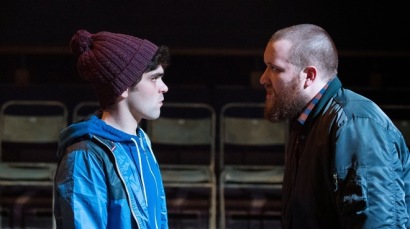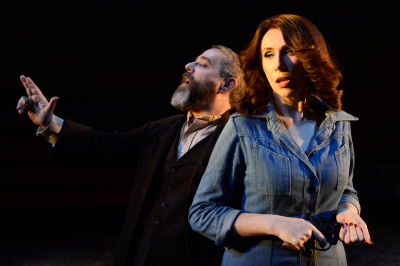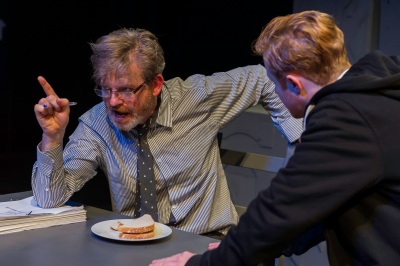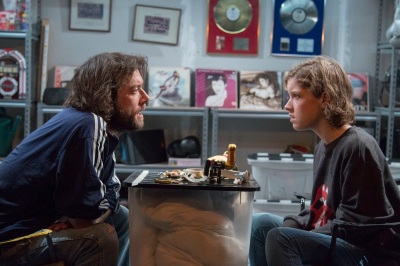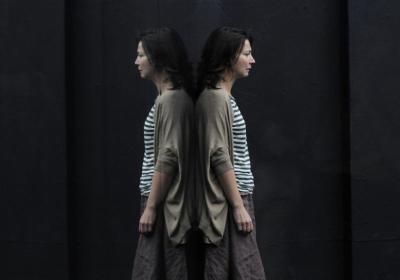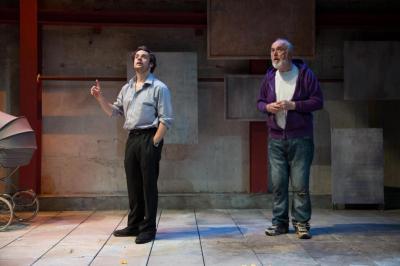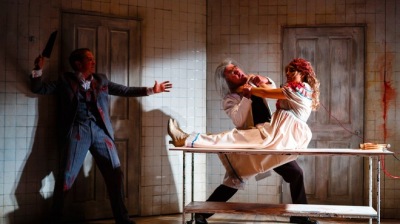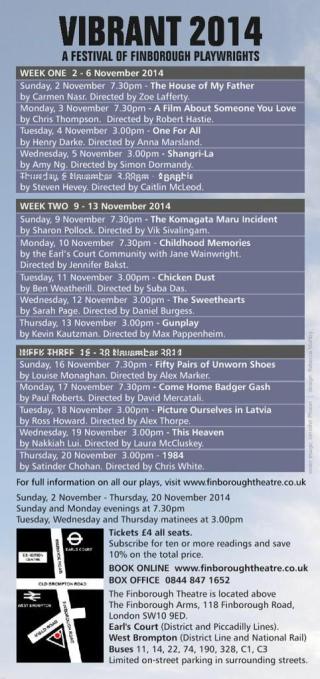 It hardly comes as a surprise that Chris Tompson’s play A Film About Someone You Love is, well, about love. But there is a catch. Not cuddly love, or even destructive one, but rather distortive. Love as a distorting mirror and a puzzle and an unreliable narrator. Which is bad news if your sense of self depends on love offered, accepted, received. Which it does. For everyone. Why is it so much easier to rely on cruel lies than on muddled truths?
It hardly comes as a surprise that Chris Tompson’s play A Film About Someone You Love is, well, about love. But there is a catch. Not cuddly love, or even destructive one, but rather distortive. Love as a distorting mirror and a puzzle and an unreliable narrator. Which is bad news if your sense of self depends on love offered, accepted, received. Which it does. For everyone. Why is it so much easier to rely on cruel lies than on muddled truths?
The play is fairly single-minded in pursuing its subject and turning the focus on different kinds of love: friends, siblings, lovers, couples, mothers and daughters. It’s a testament to both play and staging that two hours of people talking and stumbling around the most tender (if absurd) corners of their lives never got boring. The tone is finely judged and recklessly engaging: everyone’s truths are both ridiculous and dangerous around the edges. So are their lies. There isn’t a dividing line between comedy and tragedy, in fact comedy is a tragedy that is having a nervous breakdown. The staging was equally confident, led by rich silences and tense pauses.
Doon Machichan’s Sophie Batten, mother of two daughters, has the brittle determination of the survivor, when everything is very funny until it’s not. Joanna Horton’s Ellie Batten had a difficult opaque quality, the more direct her approach the less transparent her heart. Shannon Tarbet as Lea Batten was formidably unpleasant and fragile in the same breath. Ashley Zhangazha’s Monday was profoundly and hilariously bewildered by his reaction to his own life.
My favourite character was Adam, as played by Felix Scott. Continue reading →
